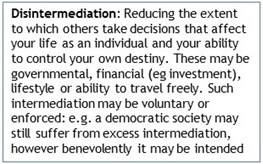“Have a big enough heart to love unconditionally, and a broad enough mind to embrace the differences that make each of us unique.”
D B Harrop (Author)
The Archbishop of Canterbury very rarely takes part on the BBC Question Time panel, but Rt. Revd. Justin Welby did just that last Thursday. There was, of course, a question about the war in Ukraine; but unfortunately no-one in the audience raised the issue of how Patriarch Kirill, leader of the Russian Orthodox Church, could possibly justify his support for Putin's murderous assault as being in keeping with Christian teaching. Last Monday ‘The Tablet’ reported that former Archbishop Rowan Williams was crystal clear on this issue: that the Russian Orthodox Church should be expelled from the World Council of Churches.
The week leading up to Easter is the climax of the Christian story, when Jesus lived out his teaching for all to see: his love for others, his humility, his challenge to the world, and his immense courage. Patriarch Kirill seems to be missing all of these, preferring to reference the constitutional evolution of the Orthodox Church in order to justify the strange medieval concept of a ‘Holy War’ — a contradiction in terms if ever there was one.
So in this commentary, as we prepare for Easter, we look at how Christianity continues to be misrepresented, and why we need to get back to the basics of Christian teaching, and particularly respect for others, if we are to make progress.
The Sunday Telegraph carried a double page spread on 3 April by Juliet Samuel, headlined ‘How Putin found God’, setting out the background of the Orthodox Church over its 1,034 year old history [for a concise summary of this history please read ‘Ukraine: National and Religious Identity’ by Will Adam]. The article is full of photographs of Putin ingratiating himself with the Russian Orthodox Church, and how he is using that identity as a tool to strengthen his ambition to rebuild the Russian empire.
Of course he is not alone in seeking to clothe the desire for worldly power in religious conviction: remember Donald Trump, standing with the Bible (upside down) in his hand following the 2020 riots in the United States? And throughout history, and in many other faiths, tyrants have sought to use religion to justify domination: indeed the bloody history of mediaeval Christianity gives witness to this gross misrepresentation.
Jesus warned his followers to watch out for ‘false messiahs and false prophets’, and his prophetic words followed directly after his warning on hypocrisy during the run up to Good Friday.
But to find his teaching of real Christian witness, it's best to look at the Sermon on the Mount: ‘Blessed are the peacemakers’, ‘Do not judge, or you too will be judged’ and, of course, to love your neighbour as yourself — who is then described, in the parable of the Good Samaritan, as the person least likely to be your conventional neighbour.
And this is the heart of the Christian faith, that deep respect for others: no matter how different they may be to us, no matter what their opinions or their take on life, no matter what their race, creed or nationality.
It is the complete opposite of aligning with quests for world domination.
The interesting thing is that this genuine respect for others is also the prerequisite for a healthy democracy, as we move forward to a more integrated world. Migration, and the blending and convergence of different people, is only going to increase in the coming years as communication, transport and climate change grows.
 If we are going to co-exist peaceably, we must allow for the maximum extent of disintermediation, whose presence relies on respect for others. Political strength which purports to defend entrenched interests will always threaten if respect for others weakens, as the populist movements behind Trump, Putin, and Orban demonstrate.
If we are going to co-exist peaceably, we must allow for the maximum extent of disintermediation, whose presence relies on respect for others. Political strength which purports to defend entrenched interests will always threaten if respect for others weakens, as the populist movements behind Trump, Putin, and Orban demonstrate.
There have been a few, just a few, examples of ‘respect for others’ really changing the world for the better; Archbishop Desmond Tutu's leadership of South Africa’s Truth and Reconciliation process comes particularly to mind. Here were complete opposites, brought together by finding the humility and courage to put ‘respect for others’ into practice, a proper representation of Christianity.
So let us take every opportunity to call out these attempts of tyrants to clothe themselves in religious identity while, at the same time, denying others the birthright of that unconditional love which must flow in order to exist. For, unless we practise unrestricted respect for others, our efforts to introduce a fairer and more egalitarian form of democratic capitalism will be hard going.
Gavin Oldham OBE
Share Radio

